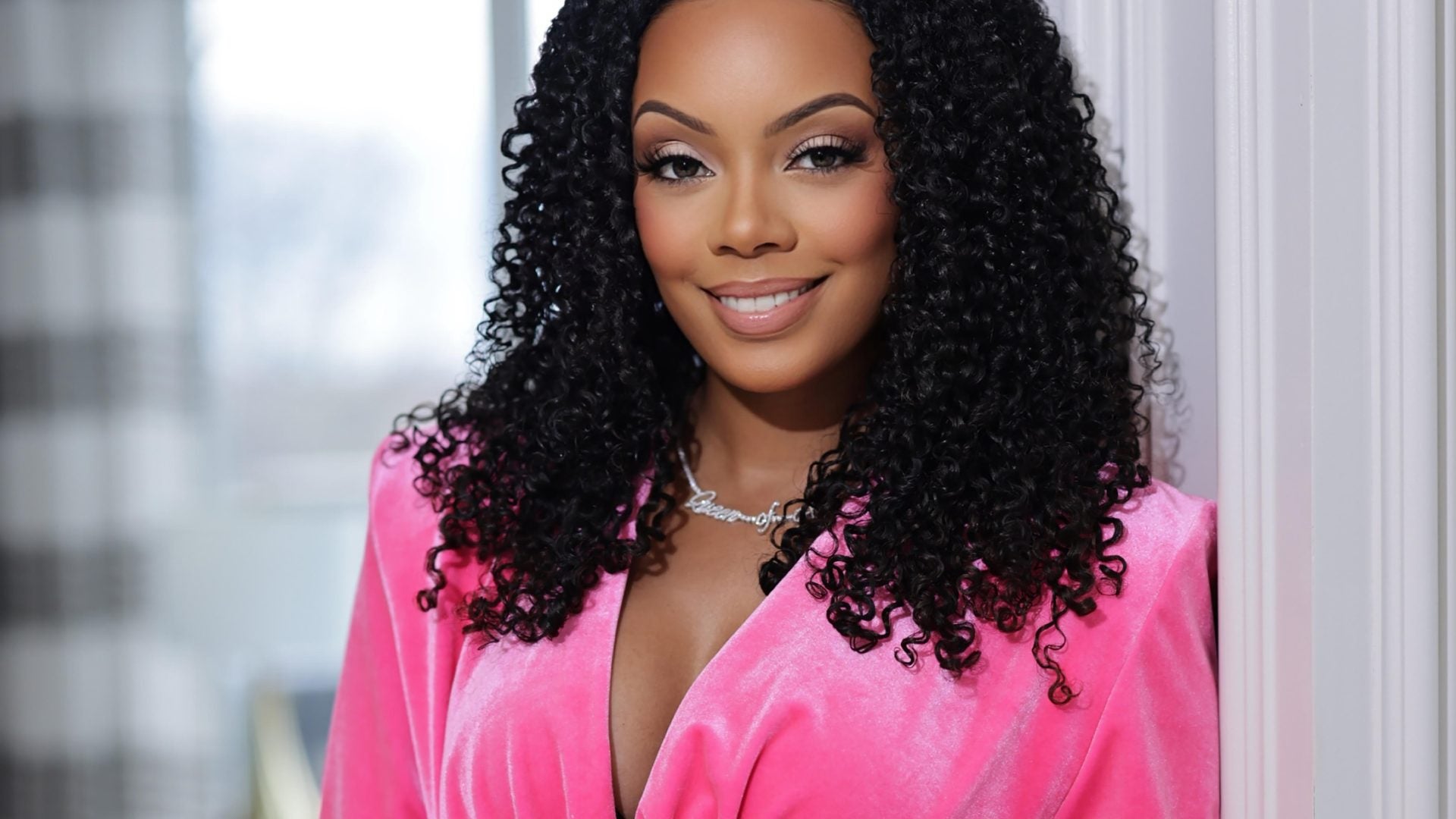
During fashion month, the industry’s biggest celebrities, journalists, and buyers get a front row seat to the newest collections from top designers. Gorgeous models walk the runway in the chic garments while (seemingly) effortlessly giving face. But what brand fans and guests don’t see, is what goes into bringing the shows to life behind the scenes. This includes all of the hair and makeup magic that leading artists create backstage.
As glamorous as it might seem, over the years, this process hasn’t always been the most comfortable experience for Black models. Although the beauty and fashion industries are continuing to expand and include more diverse and well-rounded teams, there is still a long way to go. Many models have been subject to beauty teams that don’t have the proper tools or knowledge to shade match darker skin tones or effectively coif textured hair.
To get some insight, below, 5 models — both new and seasoned — discuss their reflections from last September’s NYFW backstage experience, as we head into this year’s Fashion Month.
Maahleek

What’s your favorite part about backstage beauty?
My favorite part would definitely be working with the hair and makeup team and getting to know them.
How would you like to see the backstage beauty experience improve?
I think fashion should have more POC stylists and makeup artists. I feel like braids are fine but maybe tap into more cultural braids instead of cornrows 24/7. It becomes boring.
How do you feel backstage beauty culture has changed over the years?
I feel like there’s more Black team representation backstage these days versus when I first started. Seeing people who know how to do your hair and makeup always makes the experience better.
Danielle Mareka
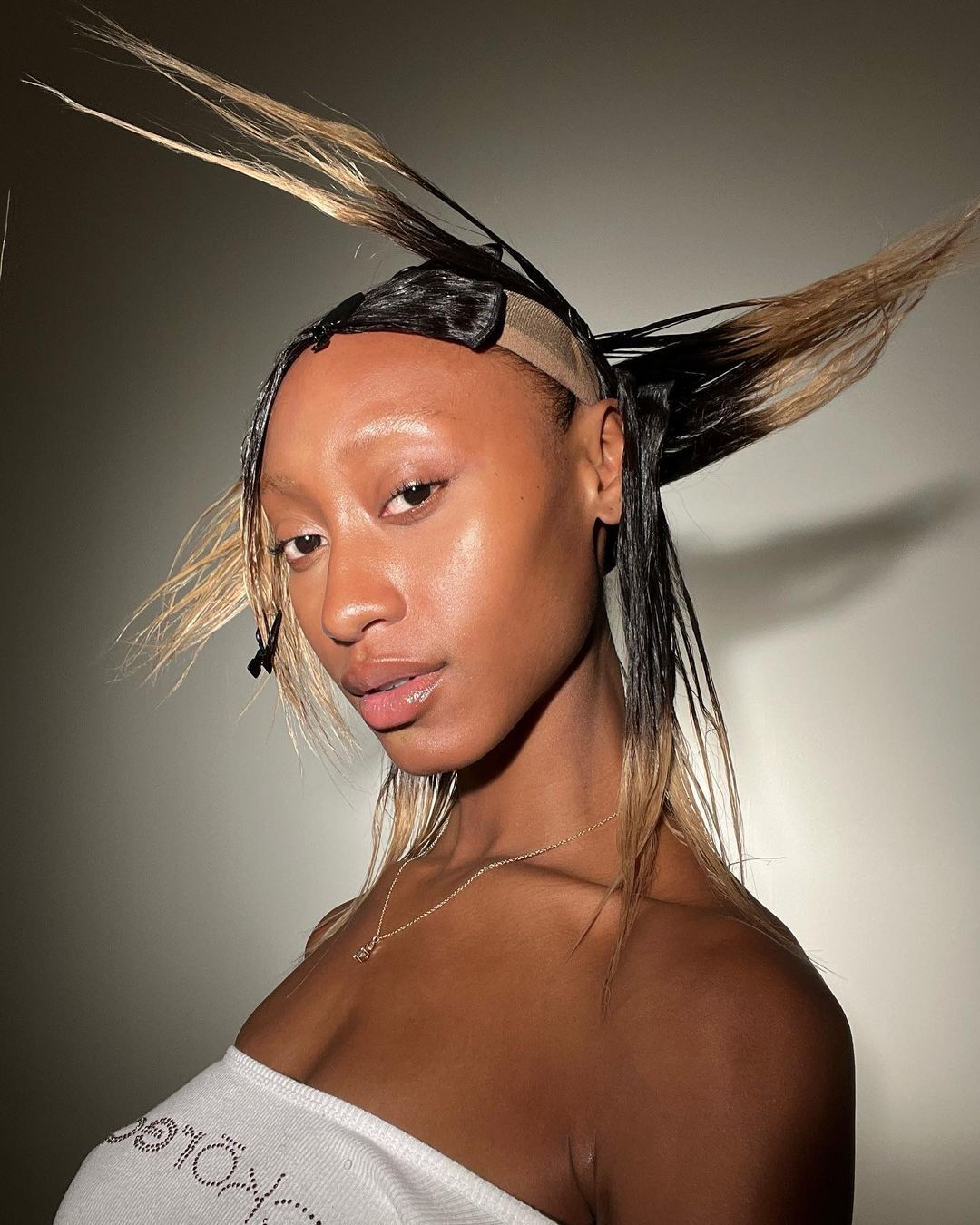
What’s your favorite part about backstage beauty?
My favorite part of backstage beauty is watching everything come together. During the progression of fashion week, you only see a glimpse of the collection or what you might wear. Everything really is revealed on show day, so it adds to this magical unveiling in that way.
How would you like to see the backstage beauty experience improve?
Braids have become more accepted on the runway, which is wonderful, but I want more brands and artists to understand the full spectrum of Black hair. And if they don’t know, take the time to study and educate themselves. There is always a way to achieve a variation of a certain style and the girls want to play dress up just like everyone else!
How do you feel backstage beauty culture has changed over the years?
Based on my experience in New York, I would like to see more play and storytelling in the beauty looks as well. Maybe there’s so much pressure to sell, that the story ends up taking a backseat. Personally, I love a good story and I think we are all craving more than just a trend.
Amya Powell
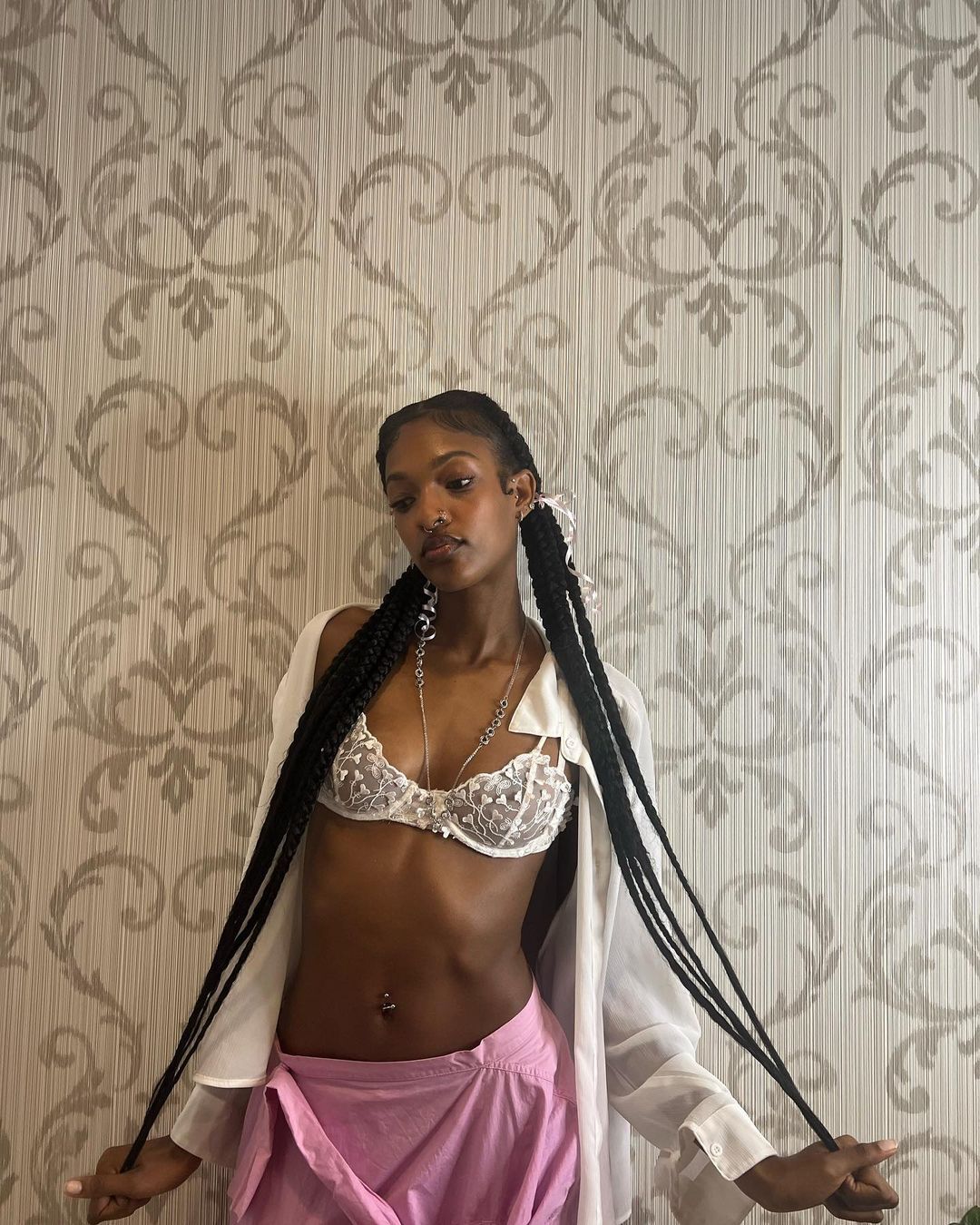
What’s your favorite part about the backstage beauty experience?
My favorite part about backstage beauty is the chance to see new and creative looks. The time and effort put behind the ideas are beautiful to see come to life
How would you like to see it improve?
I would like the industry to start making sure every Black person can walk into a job and feel secure in knowing that there are people on set who know the ins and outs of Black hair. I also no longer want me, or any other person to feel constricted to just braids. Our hair can do amazing things and it deserves to be showcased more.
How do you feel it has changed over the years?
I feel that there have definitely been steps in the right direction. People have become more aware and educated on these issues and as long as we keep having these hard conversations then we can continue making progress.
Jaydon Inkabi
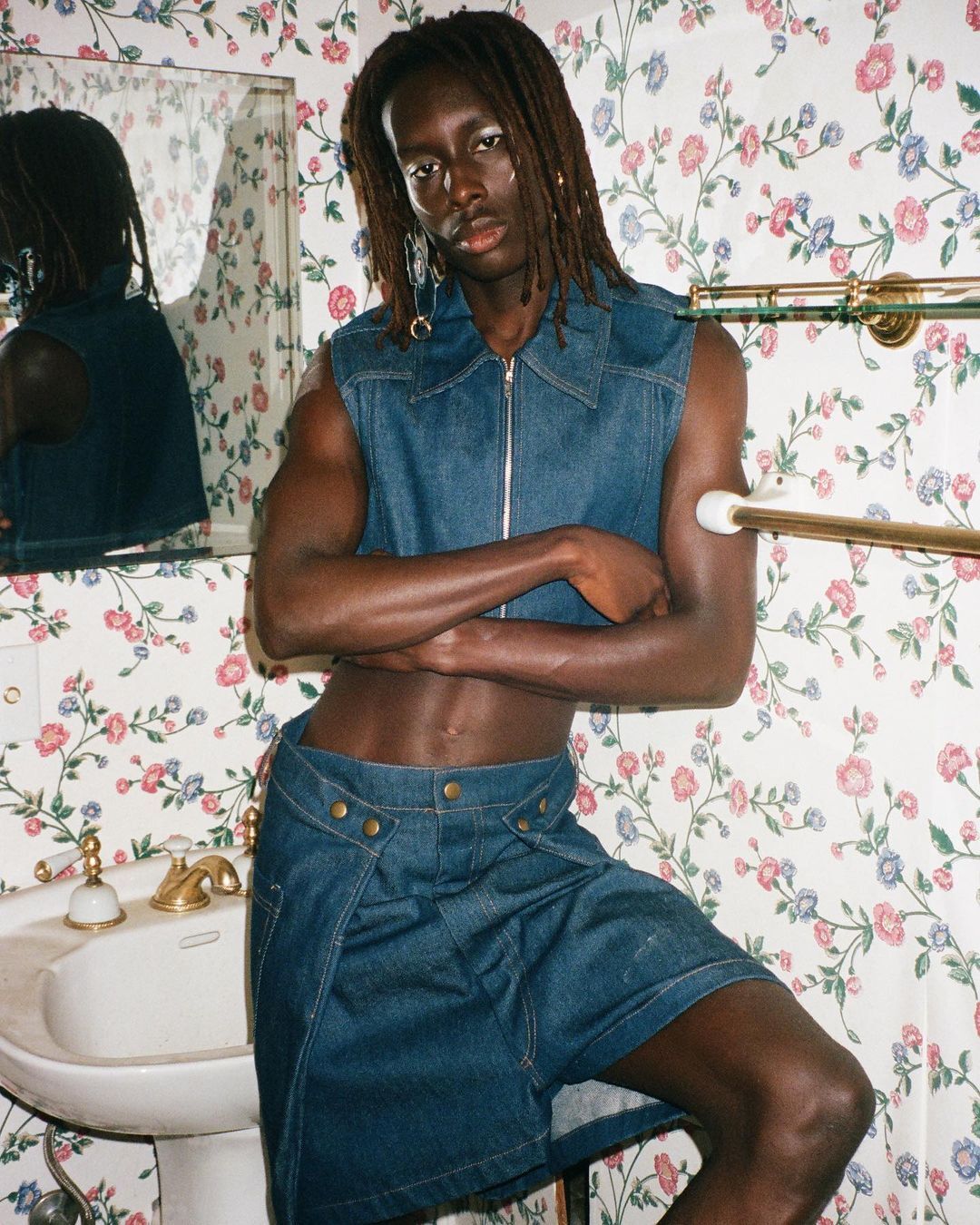
What’s your favorite part about the backstage beauty experience?
Personally, I’ve always loved being pampered; and that’s where the importance of the backstage arts are elucidated. As cliche as it might sound, connecting with makeup artists, hairstylist, and nail techs has got to be one of my favorite things to do whilst in creative environments. The part they play in these projects are essential, and being in a different position in the industry, I’m always eager to gather their perspective on many things.
How would you like to see it improve?
I think as a dreadhead, my backstage experience (especially when it comes to hair) has been rather limited. But perhaps that alone may even speak levels; as far as I can remember all I’ve ever gotten is some glimmer and glare, rarely do I ever get worked on thoroughly, because the people who do style me often times don’t know what to do with my hair.
I always looked over in awe, at the treatment many of my counterparts received compared to what I often did. If the model board has emphasized diversity, with an unequivocal and protruding presence of Black talent, the beauty and honestly, all backstage associates should represent something analogous.
How do you feel it has changed over the years?
I’ve truly been in this industry for a few years at this point, and one thing I have noticed in the short period of time spent here is the increase in diversity; rather the increasing presence of the Black artist in backstage beauty.
It could also be something that’s rise has to do with the ascension of Black owned fashion houses such as Telfar and Theophillio, now the demand seems to be shifting, and there’s a newfound demand for these Black orchestrators, in my opinion every sect of the industry, beauty being a microcosm of that.
Mecca Mozelle
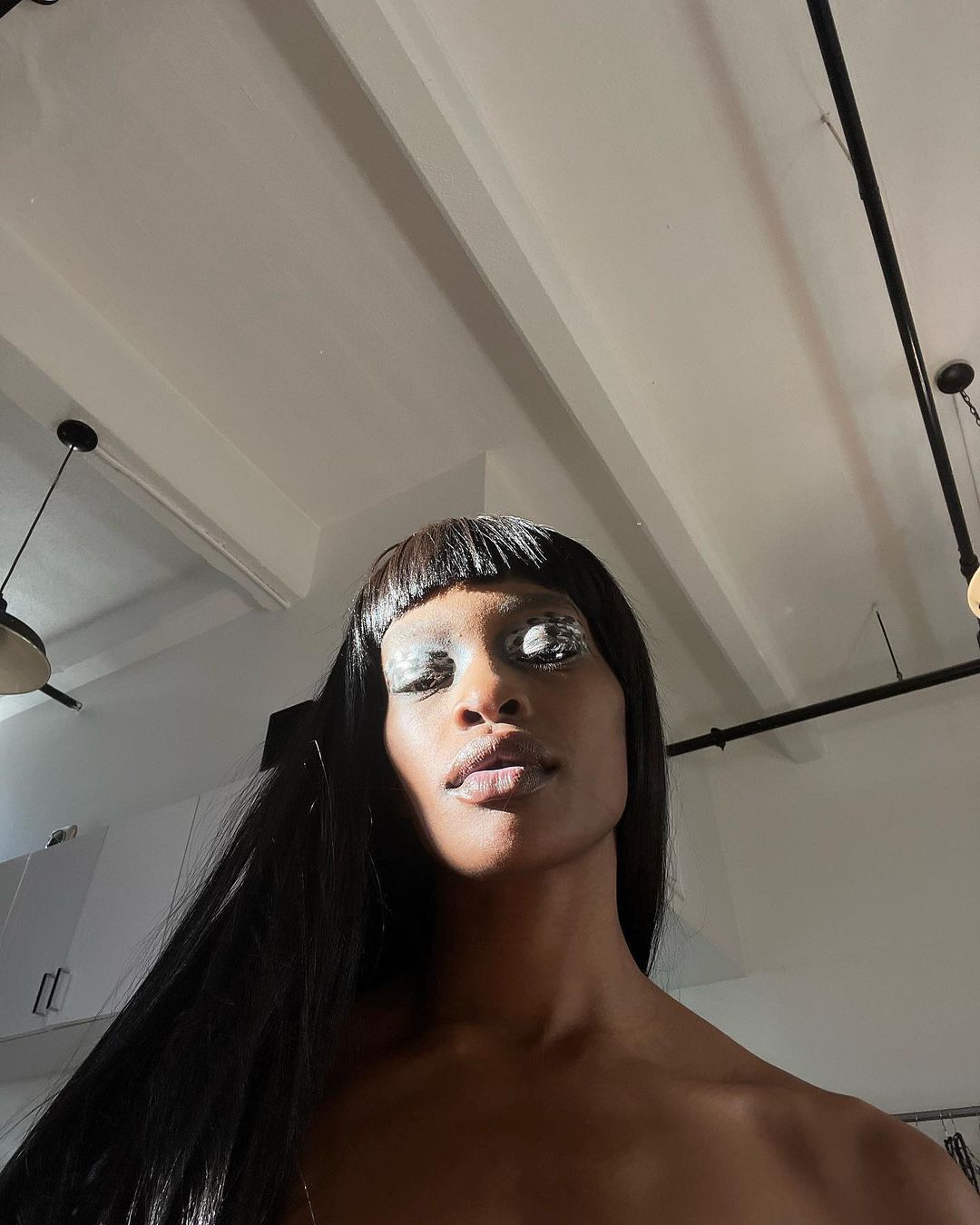
What is your favorite part about backstage beauty?
I love the speed, dedication and direct plan of how I will be showcased. It’s such a beautiful flow to witness– one model after the other being put together
How would you like to see it improve?
I’d love to see more hairstylists who are firm and comfortable working with diverse, Black hair types. It’s a privilege to work on our hair types. It’s not fair to constantly have Black models arrive in cornrows or an afro, that they can’t even shape correctly at times. I think it’s the easy or lazy way out. I think it’s important for stylists to learn to braid shapes, add tracks, do quick sew-ins– something.
Also would love to see more lead artists back stage for shoots and runway. I love Raisa Flowers’ work– she demands quality on set. And we need more Black creatives to be in positions of power and push back on beauty standards.
How do you feel it has changed over the years?
I think people are more mindful, I will give the industry that. There’s definitely a big change when it comes to making sure we are okay and comfortable. I also appreciate people checking in before just spraying products. I think body language is paid attention to more in general. We are already picked apart and in the room solely based off of what we look like, so feeling cared for on a deeper level while in these environments is healing.

